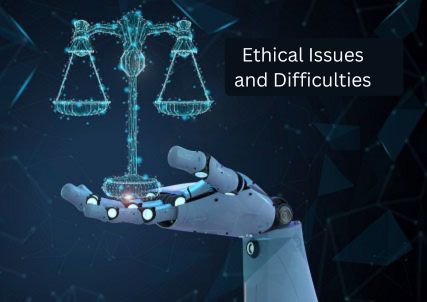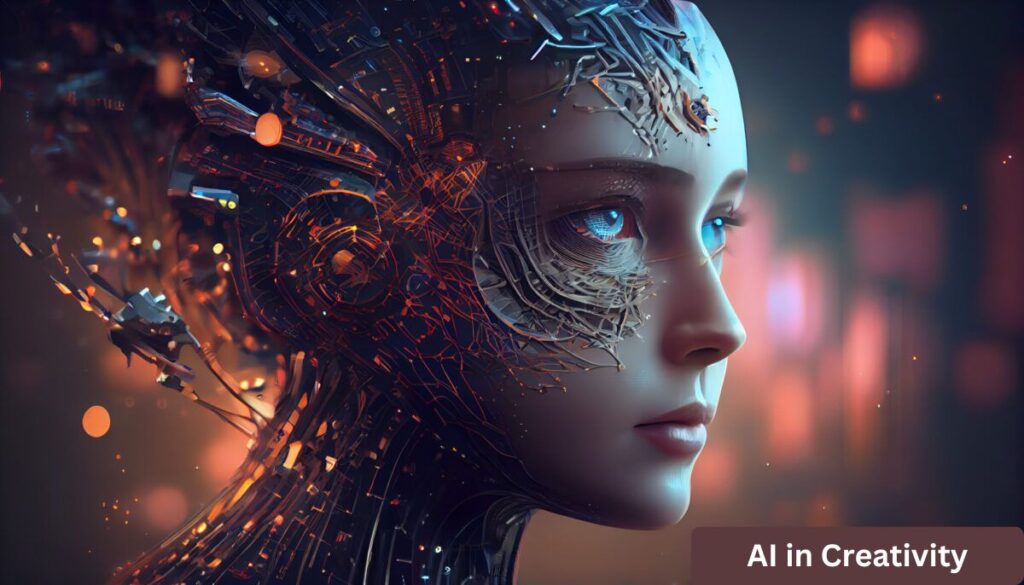Artificial intelligence (AI) is a cutting-edge technology that is drastically changing our world, not just a catchphrase. AI is becoming a key component of contemporary innovation, with applications ranging from improving corporate processes to revolutionizing human experiences.
We will explore the definition, uses, and possible effects of artificial intelligence (AI) on several different areas as we delve into this extensive guide to this intriguing field.
The goal of this post is to give readers who are interested in this cutting-edge technology a thorough grasp of artificial intelligence in a way that is both interesting and approachable.
Artificial intelligence: what is it?
Artificial intelligence is essentially the simulation of human intellect in computers that have been designed with human-like thought and learning processes.
Artificial Intelligence (AI)
AI systems are made to carry out operations like speech recognition, decision-making, and language translation that normally call for human intelligence. These systems can be as basic as simple algorithms or as sophisticated as neural networks that replicate the workings of the human brain.
AI is divided into two primary categories:
Weak AI, also known as narrow AI, is created specifically for a single purpose. Narrow AI includes, for example, chatbots, Netflix recommendation algorithms, and voice assistants like Alexa and Siri. They are good at what they are paid to do, but they are not very intelligent or flexible in general.
Strong AI,
Also known as general artificial intelligence, is a more sophisticated type of AI that can learn, comprehend, and use intelligence in a variety of contexts, much like a person. Although it is yet only a theoretical concept, general artificial intelligence is the ultimate aim of AI research.
AI Applications in a Range of Sectors
Artificial Intelligence has a wide-ranging impact on multiple sectors and industries. Here’s a closer look at the several domains where AI is making waves:
1. Medical care
AI is transforming healthcare by enhancing patient outcomes, treatment strategies, and diagnosis. High-accuracy medical image analysis by machine learning algorithms can identify cancer, fractures, and tumors earlier than with conventional techniques.
Through the processing of massive volumes of patient data and medical literature, AI-driven systems such as IBM Watson help physicians create individualized treatment plans.
2. Money
Artificial intelligence (AI) is utilized in the finance sector to improve fraud detection, automated trading, and customized financial advice. While robo-advisors offer customized investment advice based on each client’s financial goals and risk tolerance, algorithms can examine transaction patterns to spot unusual activity and possible fraud.
AI-driven chatbots can also provide customer service by effectively managing inquiries and transactions. Artificial Intelligence (AI)
3. Transport
One of the most interesting uses of AI in transportation is self-driving cars. Businesses like Tesla and Waymo are using AI to develop driverless cars that can navigate challenging terrain, avoid obstacles, and make split-second decisions. AI is also utilized in traffic management systems to minimize gridlock and improve traffic flow.
4. Shop
AI improves customer experiences in the retail industry by managing inventories effectively and making personalized recommendations. Retailers may provide customized promotions and product recommendations by using AI to evaluate customer data and forecast purchasing patterns. AI-driven supply chain management solutions also assist merchants in cutting expenses and optimizing inventory levels.
5. Learning
AI is revolutionizing education by automating administrative duties and providing individualized learning experiences. Intelligent tutoring programs can adjust to the unique learning preferences and speeds of each student, offering personalized assistance and feedback.
To free up more time for teaching and less time for administrative tasks, AI solutions also help educators with grading, scheduling, and monitoring classroom activities.
Ethical Issues and Difficulties
Although artificial intelligence (AI) has many advantages, it also presents several social and ethical issues. Among the main worries are:

1. Privacy:
To operate efficiently, artificial intelligence (AI) systems frequently need access to enormous volumes of personal data. It is essential to make sure that this data is managed securely and properly to preserve people’s privacy.
2. Bias and Fairness:
When AI systems are taught data that contains prejudices, they may unintentionally reinforce such biases. This may result in prejudice or unfair treatment, especially in delicate fields like hiring and law enforcement. It is quite difficult to overcome these biases and guarantee fairness in AI systems.
3. Job Displacement:
In some industries, jobs may be lost as a result of AI-driven work automation. Even though AI has the potential to open up new career opportunities, initiatives for upskilling and reskilling employees are still necessary to assist them in moving into new roles.
4. Autonomy and Control:
It’s critical to make sure AI systems stay within moral and legal bounds as they develop. The creation of guidelines for the ethical application of AI and the upkeep of human monitoring are essential for avoiding abuse.
AI’s Future
In the future, artificial intelligence is expected to carry on its revolutionary path, influencing both technology and society. Among the possible developments are:
1. Developments in General AI:
Scientists are trying to build AI systems with general intelligence that can comprehend and carry out a variety of activities. Reaching this objective might open up hitherto unimaginable possibilities and uses.
2. Improved Human-AI Collaboration:
AI will probably become more seamlessly integrated into daily life in the future, with AI systems enhancing rather than displacing human talents. This kind of teamwork could boost creativity and productivity in a lot of different areas.
3. AI in Creativity:
Artificial intelligence (AI) is starting to advance in artistic, musical, and literary fields. With further development, artificial intelligence (AI) might become increasingly involved in the creative process, which might result in innovative and new forms of artistic expression.

4. Ethical AI Development:
To ensure responsible use, there will be a greater emphasis on creating ethical norms and rules as AI technology develops. To develop artificial intelligence (AI) systems that serve society as a whole, efforts to overcome prejudice, privacy, and fairness will be essential.
Conclusion
Artificial intelligence is a revolutionary force that is fundamentally changing our planet. AI is spurring innovation and creating new opportunities in a variety of fields, from improving corporate operations to transforming healthcare and education.
But to make sure that AI’s advantages are felt fairly and responsibly, we must address the ethical and societal issues that surround it.
It will be essential to keep aware of and involved in the rapidly changing technological world as we enter the Artificial Intelligence (AI) era. There will be a time when technology and people can coexist peacefully if we embrace AI’s potential and solve its problems.
Comprehending the implications and possibilities of artificial intelligence (AI) is crucial for anybody interested in technology, business, or future affairs. It will enable you to make sense of the fascinating and revolutionary adventure that lies ahead.

Leave a Reply